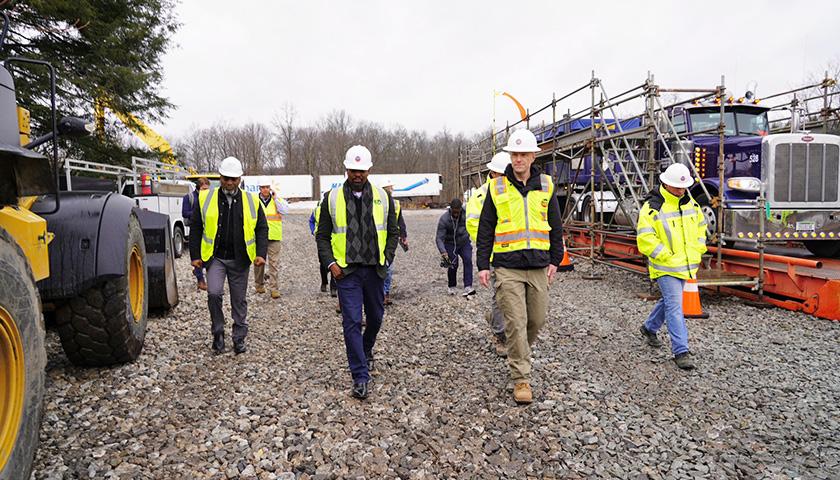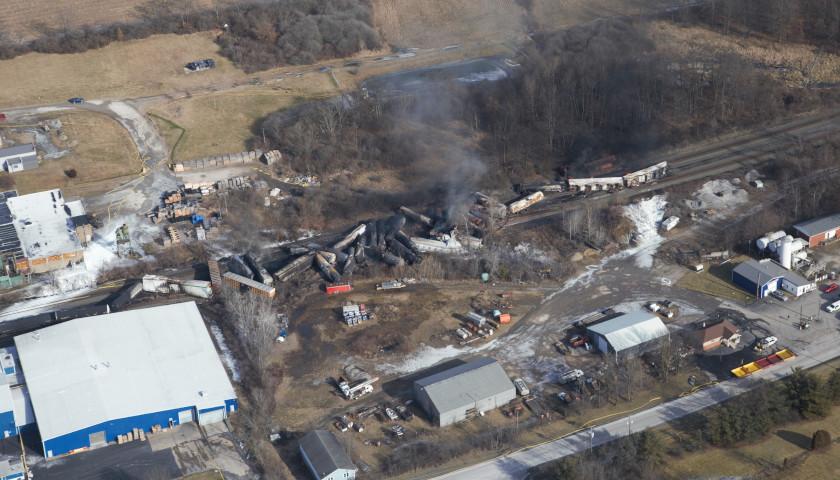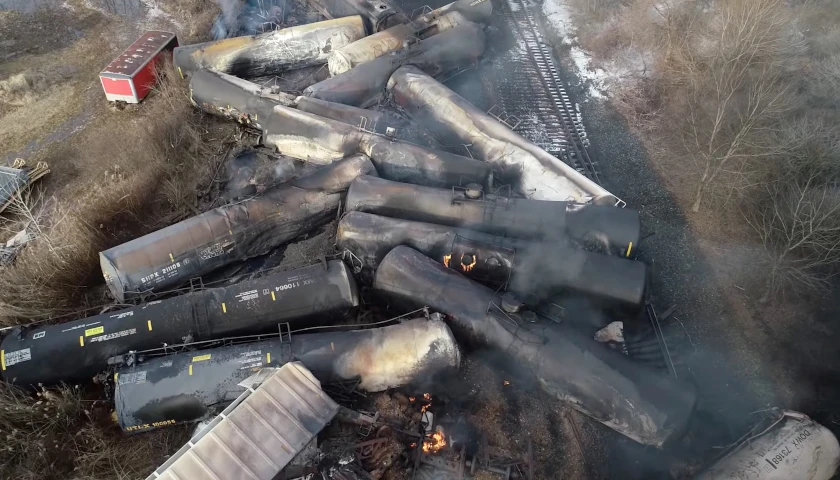States throughout the nation that have facilities for storing hazardous waste are still working to stop the transport of contaminated debris from an Ohio train disaster that culminated in a fire to their states.
On Saturday, the City and County of Baltimore, Maryland announced in a joint statement that they are “seeking a legal opinion from the Attorney General’s Office regarding the City’s requirement to treat and discharge the waste from the Norfolk Southern Railroad derailment.”
This is the latest attempt to block the transport of East Palestine waste. It follows state officials from Michigan and Texas expressing concern about the shipments of waste from the Ohio derailment being transported to facilities in their states. And Oklahoma Governor Kevin Stitt announcing he had blocked a shipment of contaminated soil to an Oklahoma facility.
Just over a week ago, the United States Environmental Protection Agency (EPA) ordered states to stop preventing the transportation of contaminated debris from reaching hazardous waste storage facilities around the country.
According to EPA Administrator Michael Regan, state governments have no justification for preventing shipments of the kind of waste that accredited facilities regularly manage
“This is impermissible and this is unacceptable,” Regan said.
U.S. Senator JD Vance (R-OH) says that the waste needs removed quickly and taken to the proper facilities or it will continue to poison the community of East Palestine.
“I understand some states don’t want to take it, but ultimately you have to get this stuff out of East Palestine, and get it in properly licensed facilities or it’s going to continue to poison this community,” Vance said.
The EPA has ordered that Norfolk Southern pay for the costs associated with cleaning up after the derailment on February 3rd that negatively impacted the environment and the health of residents in the surrounding area.
50 train carriages, 10 of which were carrying hazardous materials, derailed as a result of a technical problem with a rail car axle, according to federal authorities. There was vinyl chloride in five of the vehicles. Hundreds of residents evacuated as a result of the controlled release of poisonous gasses that Norfolk Southern carried out on February 6th to stop an explosion.
Officials told East Palestine residents on February 8th that they could safely go home, despite the reports of hundreds of dead fish in the Ohio river near East Palestine and residents complaining of headaches and illness since the derailment.
There have also been a growing number of reports of health concerns from residents following the derailment. Some residents last month say medical professionals have diagnosed them with bronchitis, lung issues, and rashes that doctors and nurses suspect link to the chemical exposure.
Ohio Attorney General Dave Yost has filed a lawsuit against Norfolk Southern to ensure it pays for the cleanup, any resulting environmental and economic harm, as well as future groundwater and soil monitoring.
According to Norfolk Southern, it is committed to restoring the area and assisting the local economy.
Numerous locals are still concerned about what toxins the derailment may have exposed them to and how it might affect the area in the future. According to government officials, while final results will be available in the coming weeks, EPA’s review of the preliminary data indicates levels of semi-volatile organic chemicals and dioxins in the samples are similar to typical background levels.
According to Regan, the cleanup in East Palestine should take approximately three months.
The EPA details that so far crews have removed approximately 9,671 tons of the 26,500 tons of excavated contaminated soil and about 8.6 million gallons of wastewater from the area.
According to the Ohio EPA, four sites have been used so far for solid waste disposal: Ross Incineration Services in Grafton, Ohio Heritage Thermal Services in East Liverpool, Ohio U.S. Ecology Wayne Disposal in Michigan, and Heritage Environmental Services in Indiana. The two Ohio sites are incinerating the waste, while the out-of-state sites are placing the waste in landfills.
– – –
Hannah Poling is a lead reporter at The Ohio Star and The Star News Network. Follow Hannah on Twitter @HannahPoling1. Email tips to [email protected]
Photo “Environmental Protection Agency” by Michael Regan, U.S. EPA.





